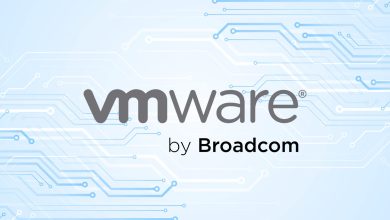How Fintech Is Revolutionising Business Operations: A Comprehensive Guide

Imagine a world where managing your finances is as simple as tapping a button on your smartphone. Welcome to the era of fintech! In today’s fast-paced digital landscape, financial technology has emerged as a true game-changer for businesses. Gone are the days of cumbersome spreadsheets and tedious manual processes; fintech solutions are revolutionising the way financial operations are managed. These tools are not just gadgets; they are strategic assets that can streamline operations, cut costs, and boost financial accuracy. In this article, we’ll explore the many ways fintech is reshaping business operations and share actionable insights for companies eager to harness these transformative technologies.
Automating Financial Operations
The Need for Automation
Traditional financial operations are often cumbersome and time-consuming, involving manual tasks that are prone to errors. Fintech automates these processes, making financial management more efficient and accurate. By moving financial operations to the cloud, businesses can reduce their dependency on physical office spaces and paper-based records.
Key Automation Areas
- Bookkeeping and Reporting: Cloud accounting software automates bookkeeping and reporting, freeing up valuable time for more strategic activities. This also ensures that financial information is up-to-date and accessible from anywhere, facilitating remote or hybrid work models.
- Invoicing and Payments: Automated invoicing and payment systems simplify cash flow management, reducing the time spent on sending reminders and tracking payments.
- Expense Management: Fintech solutions can automate expense tracking, approval processes, and reimbursements, making it easier to manage business expenses.
Reducing Overhead Costs
Cost Savings through Cloud Technology
By leveraging cloud-based solutions, businesses can significantly reduce overhead costs associated with maintaining physical office spaces and IT infrastructure. Here are some key areas where costs can be saved:
- Office Space: Moving to cloud-based operations reduces the need for extensive physical office setups, saving on rent, utilities, and other facilities-related costs.
- IT Infrastructure: Cloud solutions eliminate the need for on-premise hardware and software maintenance, reducing IT costs and enhancing data security.
- Training and Support: Many fintech solutions come with comprehensive training and support, reducing the need for additional training costs.
Enhancing Budgeting and Financial Forecasting
Precision Budgeting
Fintech tools offer real-time data and predictive analytics, which can enhance budgeting precision. Here’s how:
- Real-Time Data: Cloud-based solutions provide real-time financial data, enabling businesses to make more informed budgeting decisions.
- Predictive Analytics: Advanced analytics can predict financial trends, helping businesses to anticipate and prepare for future financial challenges.
- Automated Budget Updates: Automated budgeting tools can update budgets in real-time, ensuring that financial plans are always current.
Measuring Financial Impact and ROI
To fully benefit from fintech solutions, it’s crucial to measure their financial impact. Here’s how you can do it:
- Cost-Benefit Analysis: Compare the costs of implementing fintech solutions against the tangible benefits, such as time saved, error reduction, and cost savings.
- Efficiency Metrics: Track improvements in processing times, error rates, and resource allocation. For example, measure the reduction in hours spent on manual tasks before and after implementation.
- Financial Performance Indicators: Monitor key financial metrics such as operating margin, return on assets, and cash flow improvements attributable to fintech solutions.
Ensuring Regulatory Compliance and Security in South Africa
Compliance with regulatory requirements is paramount. Businesses must navigate a complex web of industry standards and legal frameworks to ensure the security and integrity of their financial data. Here’s how you can safeguard your operations:
Data Security
Cloud-based fintech solutions must adhere to strict data security protocols to protect sensitive financial information. Look for tools that are compliant with local regulations, such as the Protection of Personal Information Act (POPIA) and the King IV Code on Corporate Governance. Prioritise solutions that offer robust encryption, access controls, and regular security audits to keep your data safe.
Staying Up-to-Date
Regulatory requirements are constantly evolving, so it’s crucial to keep your fintech solutions up-to-date. Regularly review your software and ensure that any updates or patches address the latest compliance standards. This will help you avoid costly fines and reputational damage from non-compliance.
Systems Support and Maintenance
Continuous Support
Fintech solutions require continuous support to ensure they remain up-to-date and efficient. Here’s why it’s important:
- Regular Updates: Regular updates ensure that your fintech solutions are aligned with the latest technology protocols and best practices.
- Troubleshooting: Continuous support helps in troubleshooting any issues that may arise, ensuring minimal downtime and optimal performance.
- Training and Education: Ongoing training and education ensure that your team is proficient in using the latest fintech tools and technologies.
Case Studies and Success Stories
Real-World Applications
To better understand the impact of fintech, let’s look at some real-world applications:
- Cloud Accounting: A mid-sized manufacturing company shifted to cloud accounting, reducing their bookkeeping time by 50% and enabling remote access to financial data, which significantly improved their decision-making process.
- Automated Invoicing: A service-based business implemented an automated invoicing system, which reduced their payment processing time by 30% and improved their cash flow management.
Frequently Asked Questions
Common User Questions
- What is the initial investment required for fintech solutions?
- The initial investment varies depending on the solution chosen. However, it typically includes software costs, training, and integration fees. A thorough cost-benefit analysis can help determine the ROI.
- How secure are fintech solutions?
- Fintech solutions are designed with robust security measures such as encryption and access controls. Ensure that the solution you choose is compliant with industry standards.
- Can fintech solutions be integrated with existing systems?
- Yes, most fintech solutions are designed to be integrated with existing systems. Look for solutions that offer seamless integration options to avoid disruption to your current operations.
Conclusion
Fintech is transforming the way businesses manage their financial operations, offering unparalleled efficiency, accuracy, and cost savings. By automating financial processes, reducing overhead costs, and enhancing budgeting and forecasting, businesses can achieve significant improvements in their financial management. As technology continues to evolve, it’s crucial for businesses to stay updated and leverage the latest fintech solutions to remain competitive.




